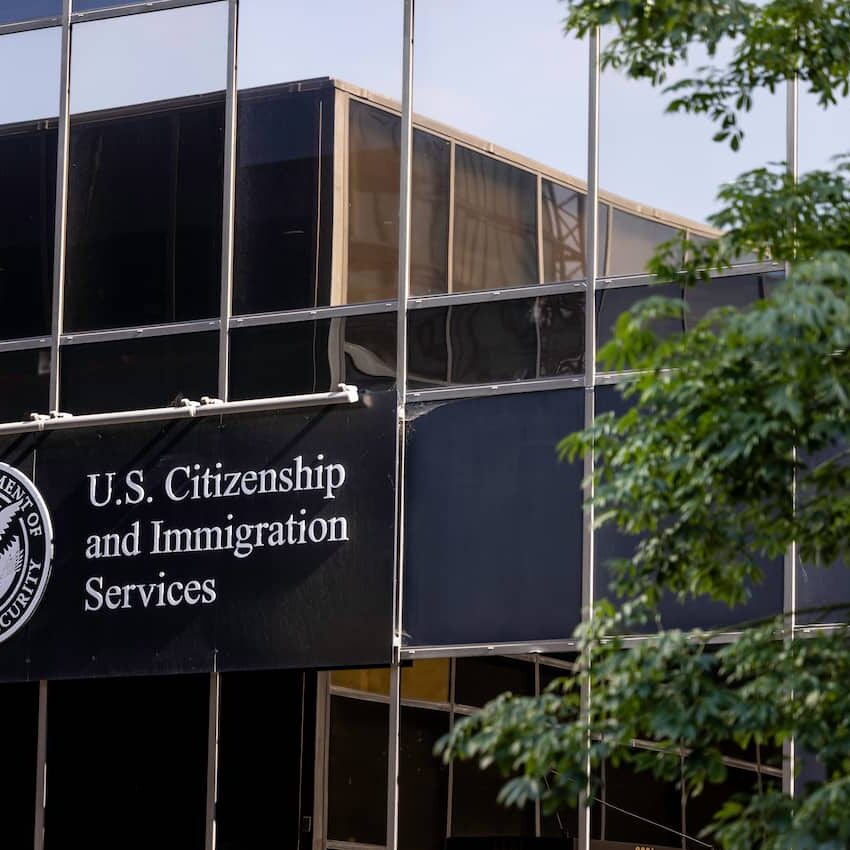At the Goldstein Immigration Lawyers, our immigration lawyers in LA regularly consult with clients who need assistance responding to all types of Requests for Evidence or RFEs. We provide detail-oriented and aggressive advocacy to ensure that clients receive the best results possible.
An RFE is a common hurdle faced by immigrants who have an application pending with USCIS. If you receive a Request for Evidence, it means that the government will not process your application until additional documentation is submitted. Typically, you’ll get an RFE because you have failed to prove that you’re eligible for the immigration benefit applied for. With a well-organized, timely and thorough response, denial can be avoided. Speak to a Los Angeles request for evidence lawyer for more.

“Why Me?”
RFEs are commonly issued where there is a defect in the initial submission. Sometimes a document is missing; in other cases, you may have failed to prove to USCIS that you meet the legal requirements for approval. Some Requests for Evidence are straightforward because USCIS will tell you precisely which document it wants. For example, it might ask you to include a copy of your passport or your I-94 that was not included in the original submission.
A well-prepared case is the best strategy to avoid a Request for Evidence. RFEs are usually requested where there was a mistake, missing document or failure to clearly show the legal basis for approval.
You should be aware that USCIS can deny applications without first issuing a Request for Evidence. Think of the request as a second chance, permitting you to have your application reviewed in spite of any errors that were contained in the initial submission.
Common Reasons an RFE Might Be Issued Include:
- Missing document
- Unpersuasive evidence
- Inadequately addressing a legal issue
- Failure to include Form G-325A with the application
- Insufficient Income Shown on the Affidavit of Support
- Failure to Include Up-To-Date Taxes with the Affidavit of Support
How to Respond to an RFE: Tips for Success
Our Boston and immigration attorney in Los Angeles are seasoned experts and will offer you a step-by-step approach to responding to any requests for additional evidence. The attorneys at the Goldstein Immigration Lawyers are immigration law experts that know the best strategy for addressing Requests for Evidence.
- Be Thorough It is important to always submit ALL of the evidence requested by USCIS. If a response to an RFE does not include all of the evidence requested, the application will likely be denied. In order to submit a thorough response, read the notice very carefully. If there is something USCIS is requesting that you do not understand, it is important to speak with an immigration attorney.
The types of documents an individual must submit to USCIS vary based on the type of application originally submitted. It is crucial, regardless of the type of RFE that was issued, for the applicant’s response to include every piece of evidence that was requested.
- Time is of the Essence All Requests for Evidence require documents to be submitted before the deadline or the application may be denied. The deadline is usually 87 days from the time the application is filed, though it can also be as little as 30 days or as long as twelve weeks. If the evidence the government requests is not received on time, the application may be denied.
- Organization is Key The notice from USCIS (often on colored paper) should always be placed on top of your response. You should always keep a copy for your records. It’s advisable to clearly index the documents with a cover letter explaining how you are eligible for the immigration benefit you applied for.
- Take a Second Look Even when the Request for Evidence seems straightforward, an attorney should take the time to review the application materials and supporting documents to see whether there is any additional documentation that can be submitted to strengthen the case.
- Make Sure You Have the Right Filing Address USCIS has offices all over the country, but Requests for Evidence are only accepted at a few locations. Before filing your response for the Request for Evidence, make sure that you send your response to the right location.
FAQs
If I can’t respond in time, can I request additional time to respond?
We generally don’t recommend asking USCIS for additional time as you’re not entitled to any type of extension by law. But in some rare instances where you have no choice but to respond to an RFE after the deadline, USCIS may review the evidence submitted as if it were timely filed.
Does a Request for Evidence mean that my immigration case will be denied?
Not necessarily. Sometimes USCIS issues a Request for Evidence in error. Our immigration office often see boilerplate RFEs that seem to be not particularly case-specific.
When should I reply to the RFE?
The deadline will be clearly listed on the top of the Request for Evidence. It is always a good idea to send in the response as early as possible, and definitely before the deadline passes. Otherwise, the application is at risk of immediate denial.
What If I Don’t Have the Documents They Are Requesting?
If the RFE asks for certain documents that you do not have at your disposal, it is important that you speak to an immigration attorney who may be able to help you request those documents, or who knows what a suitable substitute for those documents may be. For example, sometimes an individual may not a have an original copy of their birth certificate, a document commonly requested by USCIS. It is important to include secondary documentation that would prove you were born when and where you said you were. These could include records from a religious institution, such as a baptismal record, or the sworn testimony of someone who can attest to the circumstances
Should I intentionally leave out evidence when I initially file my case with USCIS so that I will have additional document to send to USCIS when or if I get an RFE?
When our office prepares an immigration case, the case that we submit includes all the evidence that we are able to gather. Our National Interest Waiver and EB-1A cases, for instance, are often thousands of pages long. We never hold back any relevant documentation. Our goal is to persuade USCIS not to issue an RFE and to approve the case.
Many people think that they can respond to only part of the RFE and then wait for USCIS to request more. Unfortunately, USCIS will only very rarely give you another chance. The first RFE you receive is typically your only opportunity to give them the clarification they require. So it is essential that you answer all the questions as concisely as possible and provide all the evidence requested of you at the same time. Failure to do so could result in a denial.
What is the difference between a Request for Evidence and A Notice of Intent to Deny (NOID)?
Instead of a Request for Evidence, USCIS may issue what is called a Notice of Intent to Deny (“NOID”). A NOID and an RFE may appear similar. But a NOID is far more serious.
A NOID is generally only issued for certain types of cases as mandated by law. These include VAWA, as well as certain legalization applications and adjustment of status cases involving certain types of physicians. But a NOID may also be issued where “derogatory information,” such as a past fraud, certain criminal history or other issue exists that may cause the application to be denied but may have been unknown to the applicant. In this case, the NOID is basically a “last call” for the applicant to offer an explanation, rebuttal, or additional information that might change the Services’ preliminary assessment.
If you receive a Notice of Intent to Deny (NOID), it means that USCIS believe that your case had enough initial evidence, but that you are nevertheless ineligible for the immigration benefit for which you have applied.
Also,the NOID response is usually due in 30 days, so the timeframe is much shorter than most Requests for Evidence.
While a NOID is not a denial, you will eventually receive a Notice of Action denying your application if you do not respond with convincing evidence to show that you should be approved.
You Only Get One Shot
Immigration law is a highly complex field to navigate. Working with a skilled immigration lawyer from the beginning will help you avoid a RFE. It is extremely important to file the response on time and with all of the evidence USCIS requested. Once the response is submitted, USCIS will make a determination based only on what they received.
Learn More From a Los Angeles Request for Evidence Attorney
Are you in the Los Angeles-area and have received a Request for Evidence? Or are you just curious about the application process and what the best immigration option for you and your family is? With his extensive experience in complex immigration case, Los Angeles request for evidence lawyer Josh Goldstein can help advise you on how best to respond to a Request for Evidence as well as other immigration issues. Please answer a few questions by clicking the button below and see if you qualify for a case evaluation.
